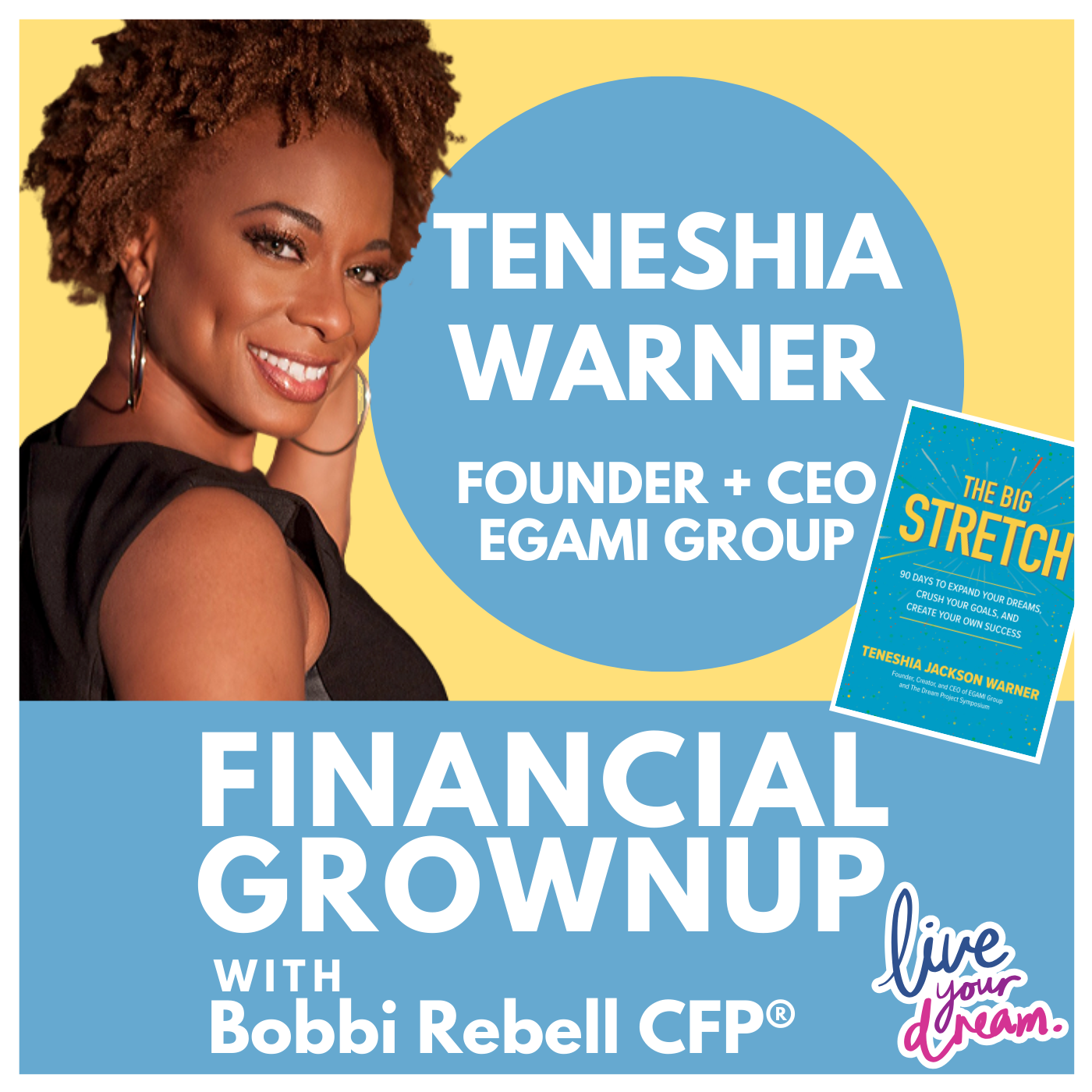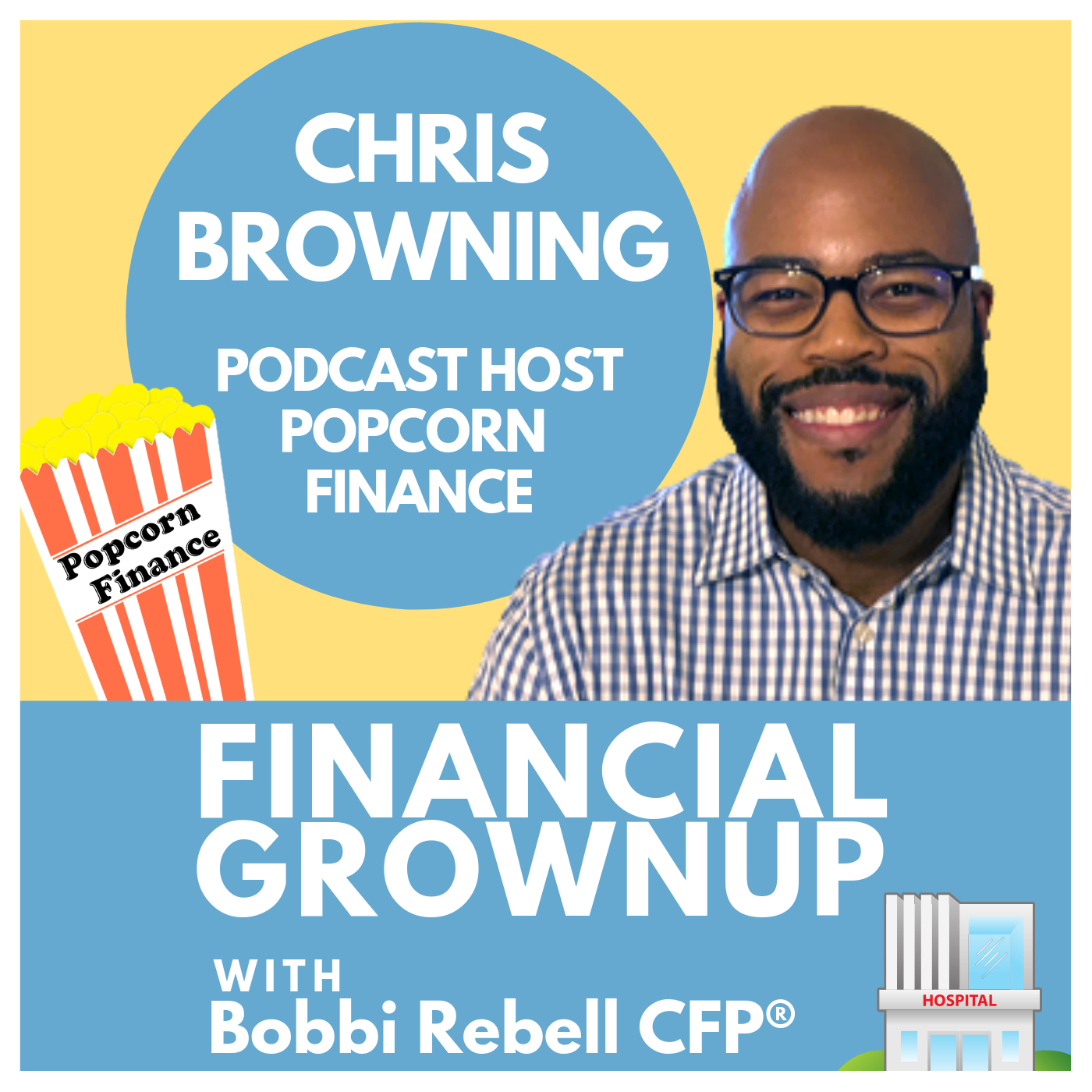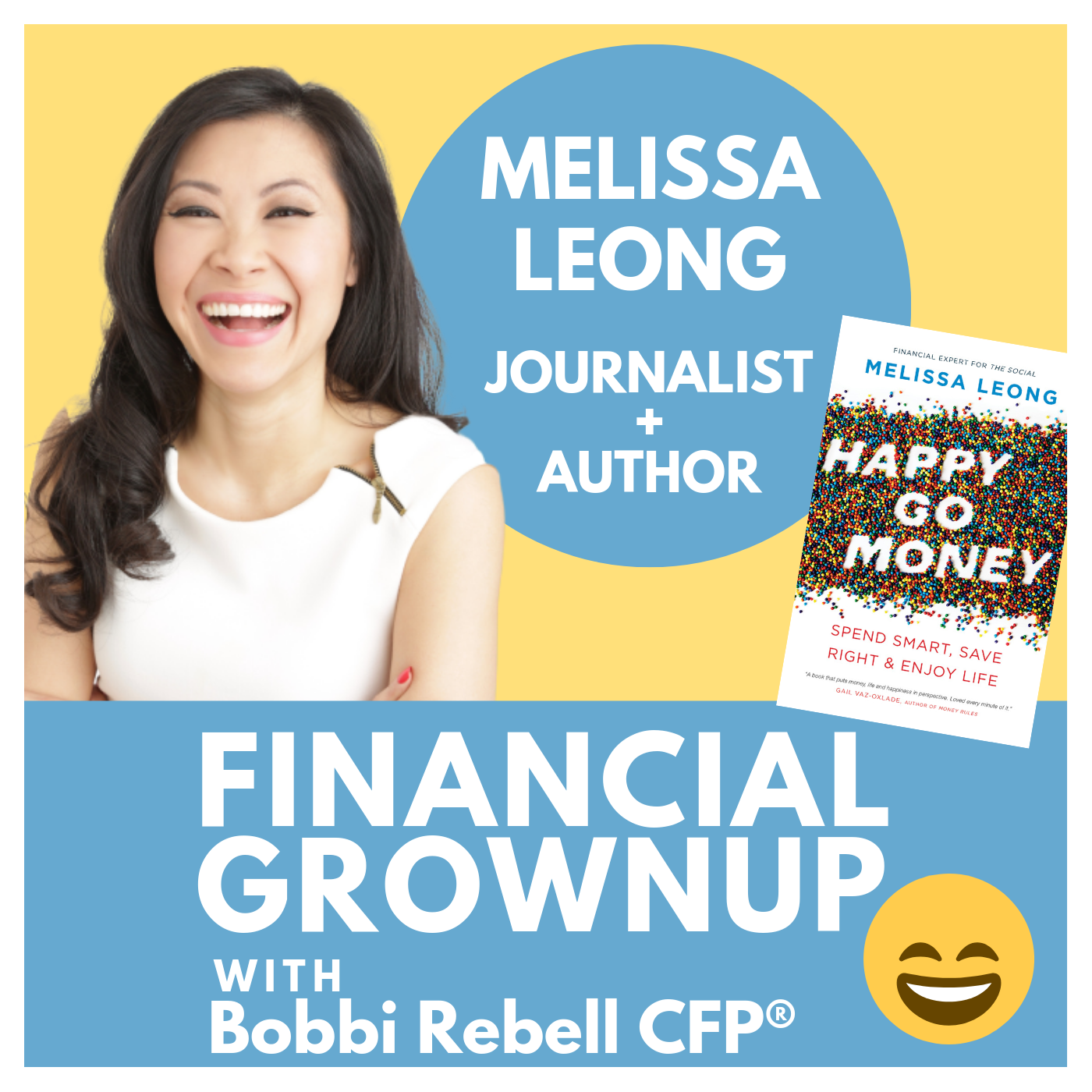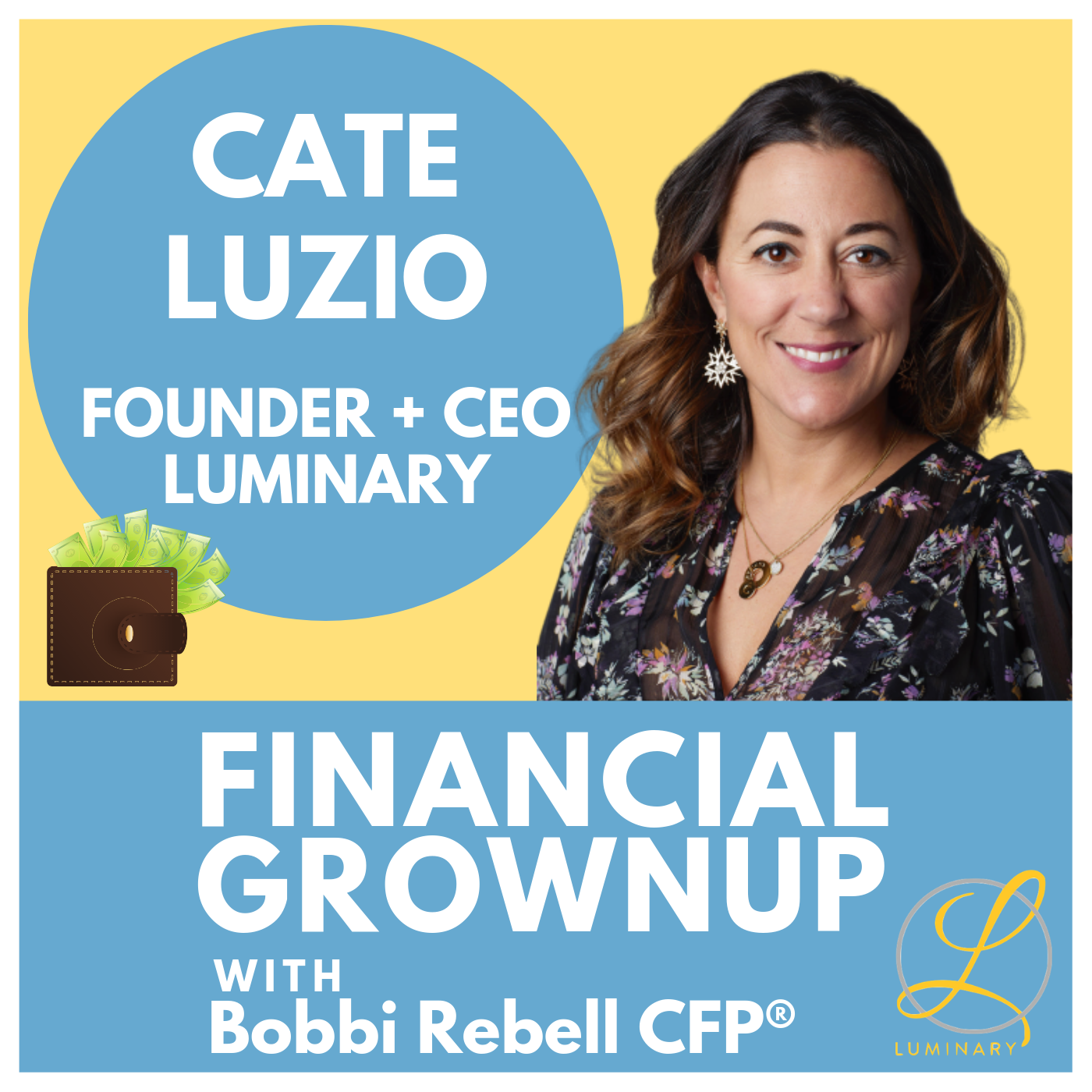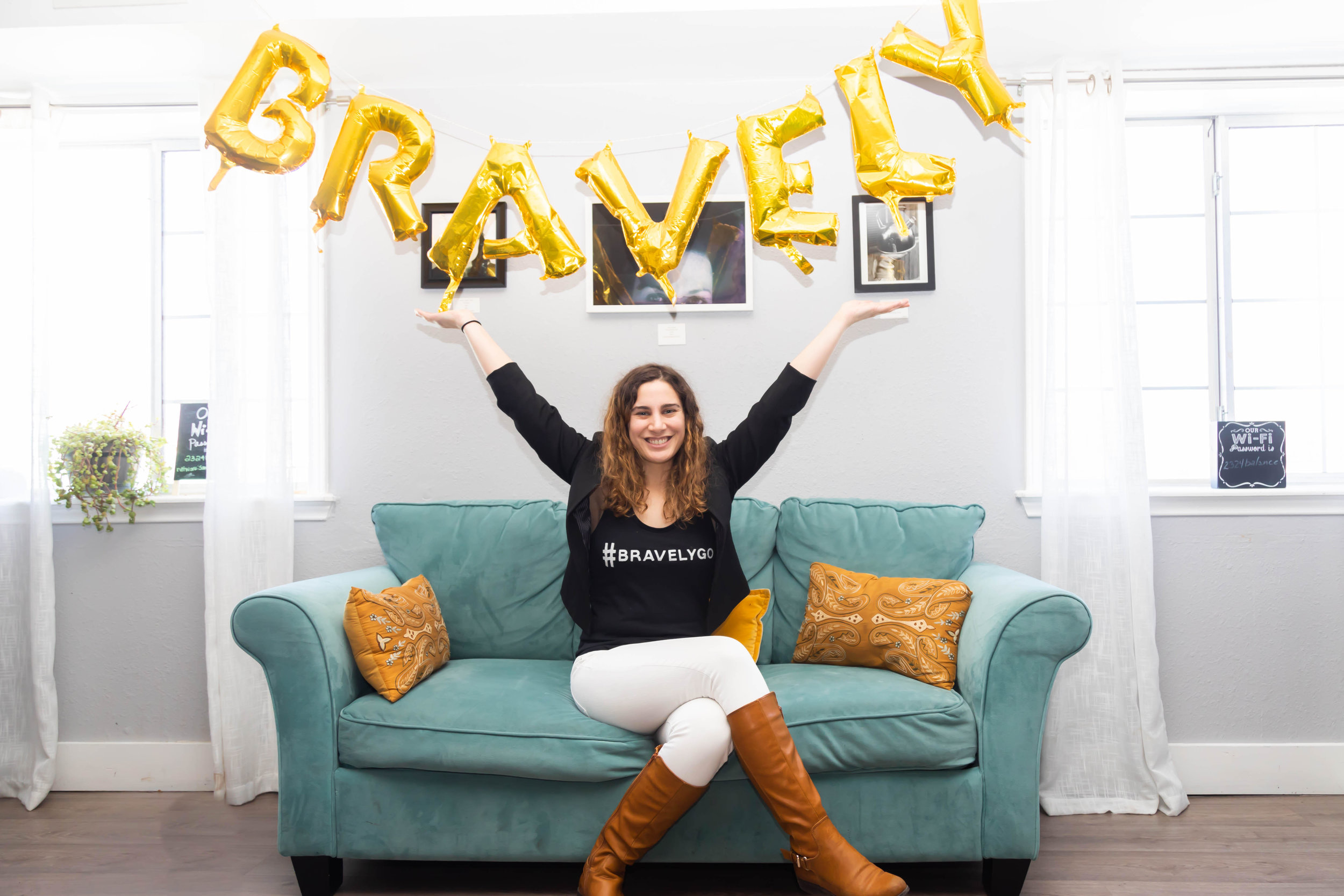Kara’s money story:
Kara Perez:
Yes, so let me paint you a picture. I'm 26; I'm living in Austin, Texas. The year is 2014 and I am crying about money every day, because I don't have any and I have a lot of student loan debt and it's ruining my life.
Bobbi Rebell:
Okay, just paint the numbers. What do the numbers look like?
Kara Perez:
Yeah. So, in 2014 I made $18,000. I graduated college in 2011 with $25,302, so flash forward back to 2014, I still have a little over $18,000 in debt. So, my income is equivalent to my debt. I'm making between $800 and $1,100 a month, working as a caterer for $12 an hour and as an MMA gym receptionist for $9 an hour.
So, the money is not really there.
Bobbi Rebell:
Right. And how did you feel?
Kara Perez:
Oh, I felt awful. I just was very much so treading water, if not falling backwards. I had to put one of my student loans ... I had five separate student loans ... I had to put one of them into deferment, because I couldn't make payments on it. I just didn't have enough money. And I was living in Austin, Texas with three roommates. I was trying to be frugal, but it was just ... the numbers quite literally did not add up, and I felt trapped, because I didn't know anything about money.
I didn't know how to use what I had. I didn't know how to get more of it, and I had no idea how to tackle my debt. It just felt like a weight on my shoulders everyday.
Bobbi Rebell:
And I just want to dial back a little bit. How did the debt come about in that, when you were taking it out, did you receive any financial education in the schools? Was it federal loans? Were they private loans? Were you consolidating them? What did this debt look like?
Kara Perez:
Yeah. I had five student loans total. Four of them were public; one was private, and zero financial education. I mean, god bless my mom in many ways, but growing up, we didn't talk about money, except for the fact that we didn't really have to. Single parent household. I have two siblings, and it was just very much so like, no we can't get that. We don't have the money for it. Not, hey, here's what the budget looks like and here's how much we're spending on rent, so we can't spend such and such ... you know, I just didn't have that break down. And in college, I also didn't get that break down.
And so, the narrative I heard was like, well, you'll take out loans so you can afford to go to school, you'll get a job and you'll pay them back. But of course I graduated in 2011, which was the aftermath of the recession and no one cared about my degree in English and jobs were changing and the workplace was changing. That path of take out the loans, get the job, open a 401K, pay back the loans, it wasn't really there anymore.
And so, it was just a whole lot of, "What am I doing?" in my mid-twenties.
Bobbi Rebell:
So, what was the Google search for? What did you search on Google for?
Kara Perez:
Quite literally, how to pay off student loans faster.
Bobbi Rebell:
And what did you find?
Kara Perez:
What was amazing is that a bunch of people who were blogging about personal finance popped up, and now I'm friends with many of those people. I fell into the world of personal finance blogging, where people were sharing their own stories in very casual ways of, "Hey, we're trying to pay off $100,000 in medical school debt," or "We're saving to buy our house in cash." And I thought, okay, this story features a cop and a teacher. If they can do it, I can do it.
For the first time, instead of feeling overwhelmed by money, this insight into other people's stories via their blogs made me feel like, oh, you're a normal person; I'm a normal person. If you can do it, I can do it.
So, from that, I spent two months just voraciously reading personal finance blogs, everything, anything. I was just crushing it. And then I started implementing some of the things I learned in my own life. So, even though I still had a really tiny income, I was able to pay off about $3,000 in 2014 in student loan debt. And so I was making $18,000, paid of $3,000.
Bobbi Rebell:
What specifically did you do? What were the first things that you learned?
Kara Perez:
First thing I learned was to sign up for automatic withdrawals from my checking account to pay my student loans, because I got a .25 percent interest reduction. So, even though it was a teeny amount, and even though I was scared because I didn't always have money in the account, I signed up for it anyway and just committed to always having money in the account. I was like, I'll just find a way. If that means I have to cut back on going out, that's totally fine. If that means I have to pick up an extra shift, I'll pick up an extra shift, but I want to get that reduction so I pay less in interest and I can get out of debt faster.
Bobbi Rebell:
Okay, what other things did you do that you learned?
Kara Perez:
The other biggest thing I would say was just getting organized about which debt I was paying off at a time, because I used to just make an extra $20 payment on this loan and an extra $20 payment on that loan, and my extra payments were kind of just thrown all over the place, and thus they weren't really making an impact.
So, I streamlined it. I used the debt avalanche pay off method, and made all my extra payments on my highest interest debt, and that really started compounding quickly, because an extra $20 every two weeks starts to add up, and then the more money ... I started also focusing on earning more, and in 2015 I made $32,000, which felt like, whoo, so much money!
I was able to put more towards the debt and make an extra $100 payment or something every two weeks, and it really, really started to go down quickly.





